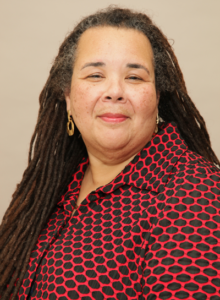
Teaching for Work Worth Doing
The up-tick of media covered violence in the USA, as well as the reports of violence from around the world, causes me to pause. While I believe that experiencing the pain, suffering, and uncertainty of the world is calling us to become a nation of compassion, forgiveness, respect and equity, I am also afraid. The Golden Rule or the rule of reciprocity is pursuing us with gusto and I am fatigued. The survival of the planet depends on our willingness to examine ourselves and change. It is mid-summer, and my attentions have turned toward preparing for fall and spring courses. Given the backdrop of terrorism and violence in the world – I feel tentative and uprooted.
It is easy to slip into the narrative of “an eye for an eye.” Or fall down the slippery slope of thinking that the suffering of some “expendable” populations is acceptable if others can live well as a result- just collateral damage for the greater cause of democratized capitalism.
The anxiety in the nation is palpable. The media identifies the acts of violence and hatred by their geographic locations; Nice, France; Orlando; Charlotte; Ferguson (to name a scant few). We are reeling from news coverage which includes cell phone videos of neighbors and family members who are shot, mauled, assaulted, maimed and murdered.
Conversations are polarized about police corruption and arrogance. Colleagues, friends, and politicians are writing public letters in response; public manifestos in protest; public statements of dismay and clarion calls for change. I am appreciative that each literary piece is like a musical note in the score for a new symphony of resistance.
In the straining for meaning – comparisons are drawn. Grasping for perspective, people are comparing this 2016 era of violence to the civil rights movement. People are harkening back to the days of blatant assassinations: JFK – 1963, Malcolm X – 1965, King – 1968, Bobby Kennedy – 1968. Others are saying that the flagrant violence dappling the nation is a-day-in-the-life for our brothers and sisters in Israel – or is the everydayness for our brothers and sisters in Beirut and Iraq and Afghanistan. Some people liken the current national violence of 2016 to nights in Watts or Camden or Chicago or Detroit – where nightly gun violence and murder is normal, routine, customary - terrorizing. They use the words of Malcolm X, “… the chickens have come home to roost,” as prophetic finger wagging.
The mainstream news routinely including a person who is professing that terrorist attacks cannot change our (U.S.) way of life! The person, usually a white, middle aged, man, proclaims that we must live our lives, keep our habits, and not “let the terrorists win!” I suspect my definition of “terrorists” is more expansive than his.
My 88-year-old father now refuses to attend the Saturday matinee for fear of being shot.
The most piercing uproar and outcry is for - what to do. Thankfully, the counter-narrative is coming on strong. Organizations like #blacklivesmatter and the Samuel Proctor Conference, led by Dr. Iva Carruthers, are diligently, systemically, and effectively working on the issues of violence, corruption and white supremacy in thoughtful, strategic and transformative ways. These organizations are calling us to empathy, compassion, and justice so we all might live and our babies yet-to-be-born might know safety.
As a Drew faculty person, I am thankful for Drew graduates who are on the front lines of the 2016 fight, the 2016 journey toward compassion. An exemplar from Drew is the Rev. Dr. William Barber, II, the President of the North Carolina State Conference of the NAACP and the National NAACP Chair of the Legislative Political Action Committee. When I think of Bill and his tireless work I know I do not teach in vain. Bill’s activism and public theology is shaped, not in spite of his theological education, but by his theological education.
With discipline and faith, I tell myself to gather myself – I have to, with intention, keep myself grounded. I force myself to stretch beyond myself.
My impulse, like so many of us, given the events of violence across the world, is TO DO SOMETHING! When I quiet myself and take a breath I re-purpose myself to commit to teach as a service of justice. I am convinced we must marshal our smartnesses/our best minds, our most creative spirits, our best innovators to solve the problems of violence, racism, militarism – which, if unchecked, will kill us.
My fears are allayed when I think of gathering with my students in the fall semester. Embedded in my course content (explicitly or implicitly) is my yearning for them to be change agents. I believe to teach well is to instill in students the ability to discern work which is meaningful, work which is transformative, work which yields compassion and empathy for the stranger. I am looking forward to challenging my students to exercise and hone their abilities to think deeply, to think imaginatively, and to think with their hearts about new ways of being in the world.
The world will become more compassionate when we teach and learn that we all are God’s children – no exceptions. Obscure classrooms in seminaries are full of people who will partner with and collaborate with Bill Barber and the others. My job is to train folks in such a way that they are not seduced nor intoxicated by the trivial, and who can engage the deeper issues of alienation, xenophobia, and hatred which are our plague. The old moorings are gone and the new ones are wrenching and cricking into existence. My job is to assist my students in doing work that is worth doing – the work of justice and compassion.
Leave a Reply